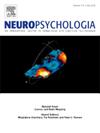Neural correlates of metacognition in education: a machine learning approach
IF 2
3区 心理学
Q3 BEHAVIORAL SCIENCES
引用次数: 0
Abstract
Metacognition, the ability to reflect and regulate one's cognitive processes, has been shown to play a role in various aspects of life, particularly in academic settings. While important steps have been made in uncovering the neural basis of metacognition for highly specific domains (such as perceptual and mnemonic decision-making), little is known about how these findings relate to general forms of metacognition relevant in education. In this study, we use a data-driven approach to (i) identify brain regions associated with metacognition in education, and (ii) investigate the issue of domain-generality and to what extent these brain regions overlap with regions involved in metacognition in the context of specific decision-making tasks used in cognitive neuroscience. Individual differences in grey-matter volume in the precuneus and neighbouring brain regions were associated with education-related metacognitive knowledge and regulation. We also found overlaps between task-related mnemonic metacognitive abilities and education-related metacognitive knowledge, for example in in the superior frontal cortex. There were also regions specifically associated with metacognition in education, such as the banks of the superior temporal sulcus. Together, our findings suggest a link between lab-setting, domain-specific metacognitive abilities and real-life metacognition in the context of education.
教育中元认知的神经关联:一种机器学习方法。
元认知是一种反映和调节一个人认知过程的能力,已被证明在生活的各个方面发挥作用,特别是在学术环境中。虽然在揭示高度特定领域(如知觉和助记决策)元认知的神经基础方面取得了重要进展,但这些发现与教育相关的一般元认知形式之间的关系尚不清楚。在这项研究中,我们使用数据驱动的方法来(i)识别与教育中元认知相关的大脑区域,(ii)调查领域一般性问题,以及在认知神经科学中使用的特定决策任务中,这些大脑区域与涉及元认知的区域在多大程度上重叠。楔前叶和邻近脑区灰质体积的个体差异与教育相关的元认知知识和调节有关。我们还发现与任务相关的记忆元认知能力和与教育相关的元认知知识之间存在重叠,例如在额叶上部皮层。还有一些区域与教育中的元认知相关,比如颞上沟库。总之,我们的研究结果表明,在教育背景下,实验室环境、特定领域的元认知能力和现实生活中的元认知之间存在联系。
本文章由计算机程序翻译,如有差异,请以英文原文为准。
求助全文
约1分钟内获得全文
求助全文
来源期刊

Neuropsychologia
医学-行为科学
CiteScore
5.10
自引率
3.80%
发文量
228
审稿时长
4 months
期刊介绍:
Neuropsychologia is an international interdisciplinary journal devoted to experimental and theoretical contributions that advance understanding of human cognition and behavior from a neuroscience perspective. The journal will consider for publication studies that link brain function with cognitive processes, including attention and awareness, action and motor control, executive functions and cognitive control, memory, language, and emotion and social cognition.
 求助内容:
求助内容: 应助结果提醒方式:
应助结果提醒方式:


